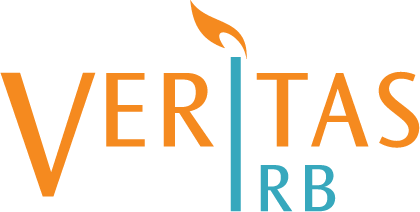Following our March 3, 2016 post entitled “Preventing your study from becoming the next tragedy.”, we received numerous requests for information regarding the Montreal tuberculosis outbreak.
This avoidable tragedy was not covered – to any great extent – by English Canadian media, which may explain why few Canadians have ever heard of it. It wasn’t surprising, however that it was of profound interest south of the border; within weeks of the tragedy, David Evans of US-based Bloomberg devoted an entire series of articles to it (1), and it became the subject of an investigation by US Senator Charles Grassley.
Radio Canada’s Enquête (the French version of CBC’s The Fifth Estate) chronicled this tragedy from the perspective of the injured research participants, and although this was an excellent and thoughtful account, it was aired three years after the tragedy occurred, and in French only. In 2009, Maclean’s included details of the tragedy in an exposé on early phase trial industry in Quebec (2) wherein SFBC Anapharm’s CEO was quoted as saying “This happened in 2005. It’s an old story.”
An old story? This depends on your perspective. If you are one of the research participants and study staff that were exposed to tuberculosis at SFBC Anapharm and are still suffering the ramifications of it, one would think that this “story” is still very relevant.
The following is an historical presentation of this avoidable tragedy and underscores the root cause of the Montreal tuberculosis outbreak – research ethics Forum Shopping.
In 2005, SFBC Anapharm was an early-phase CRO with a facility in Montreal. It ran Phase I and bioequivalence studies for various sponsors world-wide. Among them was an Alberta-based biotechnology company studying the heart-damage potential of a promising immunosuppressive agent for transplant rejection and psoriasis.
By August 2005, SFBC Anapharm conducted three phase I studies involving this immunosuppressive agent – all three studies were submitted to our research ethics board, Veritas IRB, for review.
Among the conditions of approval for these studies,
Veritas IRB insisted that all research participants be tested for tuberculosis and have a negative test result prior to study participation.
In other words, the only way SFBC Anapharm could enrol research participants into the submitted studies involving the immunosuppressive agent was to test the research participants for tuberculosis and only enrol those who tested negative.
Why was this condition important? Healthy volunteers in early phase research come from all walks of life and many have immigrated to Canada from regions of the world where tuberculosis is endemic. Exposed individuals are infected with Mycobacterium tuberculosis but many do not have active disease. Such individuals have latent tuberculosis and they can only be identified by testing for tuberculosis. If the immune system of an individual with latent tuberculosis is compromised, for example, by an immunosuppressive drug, the disease has the potential to switch from latent to active.
The three studies reviewed and approved by Veritas IRB were successfully completed and no adverse events were reported.
As was later revealed by Bloomberg,
SFBC Anapharm submitted the next study in the series involving this immunosuppressive agent to IRB Services for ethics review.
In an interview with Bloomberg,
IRB Services stated that in their review of the study, they chose to remove the condition of tuberculosis testing
“because there’s a large Haitian population in Montreal, and many potential participants would have likely tested positive and have been excluded from the trial”. In this interview, Jack Corman, CEO of IRB Services stated, “It’s clear the test has no utility.”
Instead of testing for tuberculosis, both SFBC Anapharm and IRB Services decided that it was sufficient to simply ask potential research participants if they had tuberculosis or had been in a country where the disease was prevalent. If they answered “no” and met other inclusion criteria, they were enrolled into the study.
As Steven Miles, professor of medicine and bioethics at the University of Minnesota Medical School in Minneapolis said to Bloomberg, “One point of a screening process in any trial is to watch out for people who might lie to get into a trial to make money… You assume TB until you exclude it.”
The study approved by IRB Services began on August 30, 2005. According to Bloomberg,
five days into the first of 5 confinement periods, research participant #8 “was shivering and shaking and coughing up blood”.
Four days later, all research participants were sent home. Knowing he was seriously ill, SFBC Anapharm allowed research participant #8 to remain in confinement with his fellow research participants for 4 more days!
When the research participants returned for the second, planned confinement period on September 19, 2005, SFBC Anapharm notified them that the study had been canceled because of a suspected case of tuberculosis.
As a result, well over 100 people were tested for tuberculosis – the majority were those who had come into contact with research participant #8 during the study, including staff at SFBC Anapharm. Others were also tested, including the authors of this post – we had visited the SFBC Anapharm facility during the outbreak unaware that an outbreak was occurring.
The research participants that tested positive were asked by SFBC Anapharm’s lawyers to sign a waiver of their legal rights against SFBC Anapharm. According to Bloomberg, Trudo Lemmens, law professor and bioethicist at the University of Toronto, believed thats SFBC Anapharm’s effort to get research participants to sign a waiver of their rights is unethical. “The request to sign a waiver is outrageous,” he says. “They should offer compensation and offer to pay for any future health care costs associated with this mishap.”
Bloomberg reported that Jack Corman also believed that the research participants should receive compensation, but for different reasons: “What’s a few grand to protect your reputation?”
What’s a few grand to adequately protect research participants in the first place? The tuberculosis skin test would have cost less than $40/test in 2005.
In total, 20 research participants and study staff tested positive for latent tuberculosis following the study.
Steven Miles in the Bloomberg articles said, “…SFBC (Anapharm) mishandled the clinical trial from the start by failing to adequately screen participants for tuberculosis, which is more likely to develop when someone is taking… a drug… which suppresses the immune system.”
Why did SFBC Anapharm seek out IRB Services’ approval for this study? SFBC Anapharm continued, as it had been doing for years, to send numerous studies to Veritas IRB during the same time period – but they did not send this one.
Knowing that Veritas IRB would insist on tuberculosis testing, SFBC Anapharm may have been attempting to reduce costs by eliminating the tuberculin skin test. SFBC Anapharm may have been attempting to enrol research participants more expeditiously by drawing from a larger population of potential research participants, that is, by including those with latent tuberculosis. Either of these could have been achieved by submitting the study to another IRB.
In our industry, this is referred to as Forum Shopping – the practice of submitting a study to an IRB that is likely to provide you with a favourable decision.
Forum Shopping encourages a levelling down of research standards, a practice that is potentially harmful to research participants as well as the general public – who rely on the therapeutic products derived from such research. By “shopping” for the most favourable normative environment, the “shopper” is basically gambling with the welfare of research participants in order to reach efficiency or economy. In the end, it is possible that everyone loses – the odds will eventually play against the shopper; people may get injured or die, researchers and institutions may lose their reputations and funding, and the general public’s confidence in the clinical research industry may erode even further.
Endnotes
- In October 2005, Veritas IRB refused to review any new studies from SFBC Anapharm and gave SFBC Anapharm 30 days to transfer its studies to another IRB.
- In 2006, SFBC Anapharm changed its name to PharmaNet (3). It was later acquired by Inventive Health in 2011.
- Instead of tackling Forum Shopping head on – the real cause of the Montreal tuberculosis outbreak – one year after the tragedy, Health Canada came out with a guideline for screening healthy volunteers (4).
- IRB Services was sold to Chesapeake Research Review Inc. in 2014 (5) – an IRB owned by Linden Capital Partners, a US private equity firm – and is no longer managed by Canadians. Jack Corman left IRB Services shortly after the acquisition in 2015.
References
1 http://ahrp.org/montreal-clinical-trial-subjects-expoxed-to-tuberculosis/
2 http://www.macleans.ca/society/health/inside-the-human-guinea-pig-capital-of-north-america/
4 http://www.theglobeandmail.com/life/tb-outbreak-spurs-new-drug-trial-rules/article970000/
5 http://www.prweb.com/releases/2014/04/prweb11765789.htm
This post was co-authored by my colleague Martin Letendre, Managing Director, Veritas IRB Inc. We are grateful to Murray Jensen, Managing Director, ethica CRO Inc. for his contribution.


